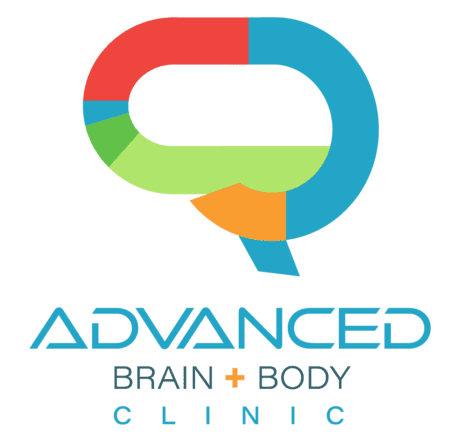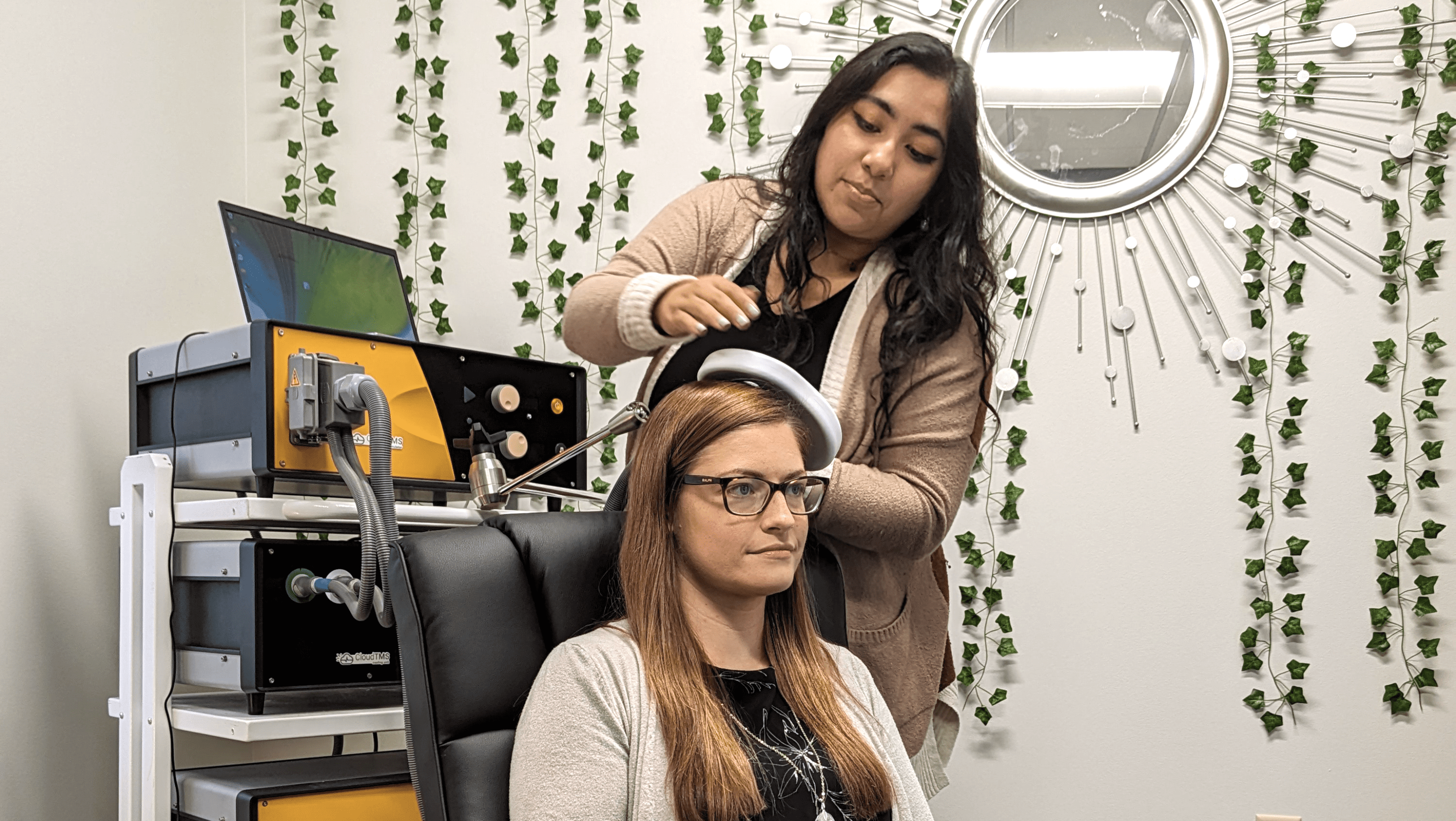Transcranial Magnetic Stimulation therapy for depression (TMS) is a noninvasive – and often overlooked – treatment option that we offer at our interventional psychiatric clinic. While it has been proven to work well for many patients with depression, OCD and nicotine dependence, researchers are continually learning how and why it works. Clinicians around the world continue to study TMS for other possible uses, including autism, addiction, tinnitus, anxiety, chronic pain, Alzheimer’s disease, amyotrophic lateral sclerosis (ALS), multiple sclerosis (MS) and traumatic brain injuries (TBIs).
Our team follows the latest up to date research on TMS and other psychiatric treatments so that we can offer patients the most effective and scientifically proven options. Below is a brief summary of some of the latest news regarding TMS.
Medicare Coverage
Does Medicare cover TMS? Yes!
Medicare now authorizes people with severe depression to receive TMS who have failed only one antidepressant medication. This is a major change that makes TMS more accessible for Medicare recipients who need it. Previously, Medicare (like most other insurances) did not cover TMS treatments until a patient had tried and failed 4 or more antidepressant medications plus psychotherapy. We are hopeful that other insurance companies will follow Medicare’s lead to make this non-medication treatment for depression affordable for all.
New Research Shows How and Why TMS Can Treat Depression
While transcranial magnetic stimulation (TMS) has been a noninvasive, FDA-approved treatment for depression and OCD for nearly 15 years, some of the details regarding exactly how and why it works have remained elusive. Recently, researchers at Stanford Medicine found that one of the many impacts TMS has on the brain is to correct the flow of brain signals.
In patients with depression, there is typically a decrease in prefrontal cortex brain activity. A lower level of brain activity correlates with depression severity, a reduced brain volume, and the ability of the brain to modulate emotion regulation centers. Until now, we knew that the magnetic pulses created by a TMS machine could stimulate neuronal activity in the brain, yet many questions still remained about the biology of what was happening to stimulate neuronal growth.
Researchers at Stanford Medicine studied 33 individuals with treatment-resistant major depressive disorder and found that their brain signals were traveling in the wrong direction. After treating the participants with TMS, the flow of neural activity reversed directions and resulted in a lift in mood.
While not everyone with depression has an abnormal flow of neural activity, this is one possible cause of depression. This research provides us with a better understanding of how TMS affects the brain to reduce or reverse depression. Read the article on Stanford Medicine News Center.
Discovering New Uses for TMS
Researchers across the globe have been studying TMS as a possible treatment for many conditions. These studies show that TMS is a promising treatment option for:
- Depression during pregnancy
- Comorbid general anxiety disorder and insomnia
- Obsessive Compulsive Disorder (OCD)
- Anorexia nervosa
- Sleep disorders including chronic insomnia, obstructive sleep apnea syndrome (OSAS), restless legs syndrome (RLS), and sleep deprivation-related cognitive deficits
- Smoking cessation
Below are brief summaries of some of the latest studies around the globe with links to read the full reports.
TMS During Pregnancy
TMS is a safe and effective treatment for depression during pregnancy.
TMS Potential Alternative to Antidepressants in Pregnancy
- In this study, pregnant women with major depressive disorder were treated with either active or sham TMS. 12 women received active TMS and 10 women received sham TMS over 20 sessions. While left-sided TMS is more standard, the researchers used right-sided TMS to offset any risk of seizure.
- At baseline, the mean Hamilton Depression Rating Scale (HDRS) scores were similar between the two groups, at 23.3 for women who would receive active TMS and 22.4 for women who would receive sham TMS. 75% of the women who received active TMS and 50% of the women who received sham TMS responded to treatment at the end of the 20 sessions. Response was higher in the active TMS group, with HDRS scores of 9.8 compared to 12.9 in the sham group at the end of the treatment series.
Transcranial Magnetic Stimulation (TMS) during pregnancy: a fetal risk factor – Saxby Pridmore, Yvonne Turnier-Shea, Marzena - Researchers recently gathered data from 10 different reports of women who had received TMS during pregnancy. The data covered 67 births over 20 years and none of the mothers or babies experienced a serious event. While the study reports that certainty awaits large, standardized studies, it states that available reports provide no evidence that TMS during pregnancy has detrimental effects on the fetus or mother.
Anxiety and Insomnia
TMS for anxiety: rTMS is an effective treatment option for comorbid GAD and insomnia.
Repetitive transcranial magnetic stimulation of the right parietal cortex for comorbid generalized anxiety disorder and insomnia
- In a 10-day randomized, double-blind, sham-controlled study, researchers evaluated the effectiveness of TMS in patients with comorbid GAD and insomnia. 18 participants received sham rTMS and 18 participants received active rTMS. Anxiety levels in the active group decreased significantly over time (44% immediately following treatment, 50% two weeks post-treatment, and 56% one month post-treatment), whereas the sham group showed little change (0% of participants showed a response at each testing interval).
- Significant improvement of insomnia symptoms were also noted in the active group, but not in the sham group.
TMS therapy for anxiety and TMS for insomnia are effective treatment options.
TMS therapy for anxiety near me >
Obsessive Compulsive Disorder
TMS and OCD: TMS improves OCD symptoms.
Transcranial Magnetic Stimulation of the Supplementary Motor Area in the Treatment of Obsessive-Compulsive Disorder: A Multi-Site Study
- 10 patients with refractory OCD and treated with standard medication were randomly assigned to either a treatment first or sham-first condition. After 2 weeks, the treatment condition switched to the sham condition, and the sham condition switched to the treatment condition. Under treatment conditions, symptom severity reduced and cognitive performance improved in parallel. Findings show that rTMS is a safe and efficient treatment for patients suffering from refractory OCD.
Repetitive transcranial magnetic stimulation of the supplementary motor area in treatment-resistant obsessive-compulsive disorder: An open-label pilot study - Researchers administered 1Hz rTMS over the supplementary motor area (SMA) in treatment-resistant OCD patients in 20 daily sessions for 4 weeks. After the 4th week of treatment, they observed significant reduction in Yale-Brown Obsessive Compulsive Scale (Y-BOCS) score. Researchers noted a reduction in compulsive behaviors, though no significant reduction in obsessions.
- Clinical improvement also showed significant change at the 2nd and 4th week of the treatment. No adverse effects were seen. Findings suggest that rTMS can be an efficient and safe add-on therapeutic method in treatment-resistant patients with OCD.
Transcranial magnetic stimulation in the treatment of obsessive–compulsive disorder: current perspectives - rTMS shows promise as part of a toolbox of current psychiatric treatment options for OCD. Its noninvasiveness with good tolerability and side effect profile make it an appealing treatment consideration. Underlying neurobiological mechanisms related to TMS are still under evaluation, but appear to offer a novel “third” way of addressing symptoms via localized electrical stimulation.
- rTMS could also be evaluated as an option in patients who cannot tolerate pharmacological treatment and have limited benefits from psychotherapy approaches.
Anorexia Nervosa
There is preliminary evidence of therapeutic potential of rTMS in SE-AN.
Randomized controlled feasibility trial of real versus sham repetitive transcranial magnetic stimulation treatment in adults with severe and enduring anorexia nervosa: the TIARA study
- In a double-blind parallel group, randomized controlled design, 30 participants were randomly selected to receive 20 sessions of either real or sham high-frequency rTMS. Outcomes were assessed at baseline, post-treatment, and at follow-up. Effects were small for BMI and eating disorder symptoms, medium for quality of life and moderate to large for mood outcomes, all favoring rTMS over sham.
- rTMS was safe and well tolerated. Outcomes provide preliminary evidence for the therapeutic potential of rTMS in severe, enduring anorexia nervosa (SE-AN).
Sleep Disorders
TMS can safely treat some sleep disorders.
Repetitive transcranial magnetic stimulation in primary sleep disorders
- A multi-database search shows that rTMS is safe and feasible in chronic insomnia, obstructive sleep apnea syndrome (OSAS), restless legs syndrome (RLS), and sleep deprivation-related cognitive deficits. Limited or no data are available for narcolepsy, sleep bruxism, and REM sleep behavior disorder.
Smoking Cessation
TMS is safe and effective for smoking cessation.
Transcranial Magnetic Stimulation Treatment for Smoking Cessation: An Introduction for Primary Care Clinicians
- Numerous early studies tested therapeutic TMS to improve smoking cessation outcomes. These studies focused on modulating activity of brain regions associated with smoking addiction and reported largely positive impacts on cravings, tobacco use, and smoking abstinence rates. Stimulation of these areas in the brain is thought to modulate mesolimbic and mesostriatal dopaminergic structures implicated in tobacco use disorder, a mechanism that also has implications for treatment in a wide range of addiction disorders.
Evaluation of Deep Transcranial Magnetic Stimulation (DTMS) With the H-ADD Coil as an Aid to Smoking Cessation - This multi-center, industry-sponsored trial evaluating the BrainsWay H4 TMS system led to FDA approval of TMS for smoking cessation in 2020. This prospective, double-blind, randomized sham-controlled trial recruited at 12 sites in the U.S. and 2 sites in Israel from 2014 to 2019. Enrolled subjects were randomized into equal active or sham groups. Participants were chronic and heavy smokers meeting DSM-5 criteria for tobacco use disorder and were motivated to quit. Each TMS session was preceded by a 5-minute provocation procedure that induced cravings for nicotine and was followed by 2 minutes of motivational dialogue to encourage quitting. rTMS sessions were provided 5 days per week for 3 weeks, then once a week for another 3 weeks.
- The results demonstrated a significantly higher 4-week continuous quit rate of 28% in the active TMS treatment group versus 11.7% in the sham treatment group. Participants who received active TMS smoked significantly fewer cigarettes per day compared to sham.
Transcranial Magnetic Stimulation Near Me
Our clinicians are very excited to see that TMS is safely and effectively helping people with a variety of psychiatric conditions from nicotine addiction to Obsessive Compulsive Disorder. Our team continues to follow the latest research on new treatment methods for depression, anxiety, and other mental health conditions so that we can provide our patients with the latest, proven treatment methods.
Advanced Brain and Body Clinic offers transcranial magnetic stimulation in Golden Valley, MN.
Healthcare providers: Learn more about referring your patients to Advanced Brain + Body Clinic for TMS therapy.
Patients: Find transcranial magnetic stimulation near me >

Advanced Brain + Body Clinic Ketamine TMS is a holistic treatment-resistant depression clinic in Minneapolis-St. Paul specializing in TMS, ketamine and esketamine (Spravato) treatments. Our two founding psychiatrists are board-certified MDs and many years’ experience in practicing psychiatric medicine combined with holistic brain health best practices. AB+BC is the only clinic to offer all four routes of ketamine administration prescribed by mental health doctors.

